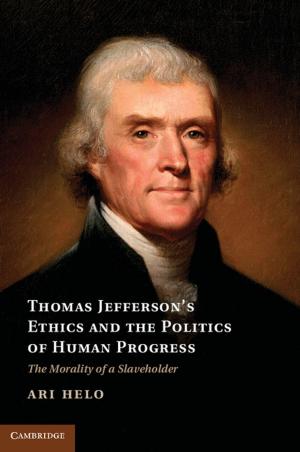Humanomics
Moral Sentiments and the Wealth of Nations for the Twenty-First Century
Business & Finance, Economics, Nonfiction, Social & Cultural Studies, Social Science| Author: | Vernon L. Smith, Bart J. Wilson | ISBN: | 9781108187855 |
| Publisher: | Cambridge University Press | Publication: | November 30, 2018 |
| Imprint: | Cambridge University Press | Language: | English |
| Author: | Vernon L. Smith, Bart J. Wilson |
| ISBN: | 9781108187855 |
| Publisher: | Cambridge University Press |
| Publication: | November 30, 2018 |
| Imprint: | Cambridge University Press |
| Language: | English |
While neo-classical analysis works well for studying impersonal exchange in markets, it fails to explain why people conduct themselves the way they do in their personal relationships with family, neighbors, and friends. In Humanomics, Nobel Prize-winning economist Vernon L. Smith and his long-time co-author Bart J. Wilson bring their study of economics full circle by returning to the founder of modern economics, Adam Smith. Sometime in the last 250 years, economists lost sight of the full range of human feeling, thinking, and knowing in everyday life. Smith and Wilson show how Adam Smith's model of sociality can re-humanize twenty-first century economics by undergirding it with sentiments, fellow feeling, and a sense of propriety - the stuff of which human relationships are built. Integrating insights from The Theory of Moral Sentiments and the Wealth of Nations into contemporary empirical analysis, this book shapes economic betterment as a science of human beings.
While neo-classical analysis works well for studying impersonal exchange in markets, it fails to explain why people conduct themselves the way they do in their personal relationships with family, neighbors, and friends. In Humanomics, Nobel Prize-winning economist Vernon L. Smith and his long-time co-author Bart J. Wilson bring their study of economics full circle by returning to the founder of modern economics, Adam Smith. Sometime in the last 250 years, economists lost sight of the full range of human feeling, thinking, and knowing in everyday life. Smith and Wilson show how Adam Smith's model of sociality can re-humanize twenty-first century economics by undergirding it with sentiments, fellow feeling, and a sense of propriety - the stuff of which human relationships are built. Integrating insights from The Theory of Moral Sentiments and the Wealth of Nations into contemporary empirical analysis, this book shapes economic betterment as a science of human beings.















